Introduction to Business Insurance for Sole Traders
Let’s begin our journey in the world of business insurance with a basic understanding of what it means to be a ‘sole trader’. Predominantly, a sole trader is an individual who operates their own business, bearing all responsibilities for its success or failure. This unique business structure offers the freedom of being your own boss but also places the weight of risks and liabilities on your shoulders. Navigating these challenges effectively can be a determining factor in your venture’s survival and growth.
Australia’s business landscape has seen a significant rise in the number of sole traders. According to a report by the Australian Bureau of Statistics, as of June 2020, more than 62% of businesses in Australia were operated by sole traders. This statistical insight underscores the relevance of sole traders in contemporary business ecosystems, bringing to the forefront the need for them to be adequately insured.
As a sole trader, the stakes are high – it’s your livelihood on the line. Every client interaction, every professional advice given, and even the state of your business premises, all present potential risks. These risks, if left unmanaged, can spell disaster for your financial stability and business reputation. This is where business insurance steps in, providing you with the necessary cover to keep sailing smoothly, even in turbulent waters.
But before we delve into the nitty-gritty of business insurance for sole traders, it’s crucial to have a clear understanding of what it entails. This blog aims to guide you through this often complex terrain. We’ll be exploring different insurance types, their benefits and drawbacks, and how to choose the right one for your unique business needs.
Ready to embark on this vital journey? Let’s set sail!
Understanding Business Insurance as a Sole Trader
Now that we’ve established the notion of a sole trader and its place in the business world, let’s delve into the specifics of business insurance for such individuals. The concept of business insurance is not merely an abstract idea; rather, it is a vital tool to protect your business from potential risks and liabilities.
When we talk about business insurance, we are referring to a broad array of policies designed to safeguard businesses against losses. These losses can emerge from various aspects of business operations, such as damage to property, legal liabilities, and employee-related risks. However, the implications of business insurance extend even further for sole traders.
Imagine, for instance, the example of a demolition contractor who operates without liability insurance. If a disaster occurs during a job, such as damage to a neighbouring property or injury to a worker, the sole trader could be personally sued for damages. The financial consequences could be devastating and potentially lead to bankruptcy (Priority Insurance Brokers).
In essence, the absence of adequate insurance coverage exposes sole traders to significant risks and liabilities. Without insurance, they bear the full brunt of any loss or damage that their business activities might cause. Moreover, insurance is not just about shielding from potential liabilities; it also enhances a sole trader’s credibility. As many clients prefer working with insured businesses, having appropriate coverage could open up more opportunities for growth and success.
It’s important to remind ourselves that while sole traders can technically operate without certain types of insurance, this path is fraught with peril. The stakes are high in the world of business, and a single unfortunate event could lead to substantial financial loss or even litigation. Therefore, understanding and investing in business insurance is not just an option but a necessity for sole traders.
Unpredictability is a constant companion in the business landscape. Even with meticulous planning and risk management, unforeseen incidents can occur, disrupting operations and causing potential financial strain. Business insurance serves as a safety net, providing financial support when you need it most. It’s a tool that can help sole traders navigate through these uncertainties and maintain the sustainability of their business.
Why Insurance is Essential for Sole Traders

Stepping into the realm of sole trading can be as exciting as it is daunting. Along with the thrill of independence and control comes an array of responsibilities, one of which is business insurance. But why is insurance so critical for sole traders? Let’s dig deeper into the reasons, both legal and practical, along with some real-world scenarios that underline its importance.
Legal Requirements and Risk Mitigation
Firstly, let’s talk about legality. In many jurisdictions, certain types of insurance are mandatory for businesses, including those run by sole traders. This not only ensures a level playing field but also provides a safety net for both the business and its customers or clients. Neglecting these legal requirements can lead to hefty fines, lawsuits, or even the closure of the business.
Apart from fulfilling legal obligations, insurance acts as a shield against the unforeseen risks inherent in doing business. A mishap at your workplace, a client lawsuit, or a product failure could result in significant financial strain. Business insurance serves as a crucial risk mitigation tool, protecting sole traders from such potential pitfalls, and ensuring business continuity even in the face of adversity.
Financial Security
As a sole trader, your personal and business finances are legally considered one and the same. Without proper insurance, you could be personally liable for any business-related debts or damages. Imagine having to pay out of pocket for a hefty lawsuit or to cover the costs of property damage. Such expenses could wipe out your savings and plunge you into debt. Therefore, insurance does more than just protect your business assets—it safeguards your personal financial security as well.
Real-World Scenarios: The Importance of Insurance
To further illustrate the importance of business insurance, let’s consider some real-world scenarios. Picture a sole trader operating a small construction firm. An unexpected accident on-site could lead to employee injury or property damage. Without insurance, the sole trader could face substantial costs and potentially damaging lawsuits.
In another scenario, consider a freelance consultant accused of giving faulty advice that led to a client’s financial loss. Professional indemnity insurance in this case would cover legal costs and potential compensation payouts, saving the sole trader from a devastating financial hit.
These examples highlight how business insurance can be the lifeline that keeps a sole trader afloat in stormy seas. It is not just a legal necessity or a risk mitigation tool, but a critical component of long-term financial planning and business survival.
Different Types of Business Insurance for Sole Traders
Having established the importance of business insurance for sole traders, it’s prudent to delve into the different types of insurance available. Each type is designed to cover specific risks associated with running a business, providing a safety net for diverse scenarios. Let’s explore some key insurance types that are particularly relevant for sole traders:
Public Liability Insurance
Public Liability Insurance is one of the most common types of coverage for sole traders. This insurance helps protect your business against legal and compensation costs that may arise from third-party injuries or property damage caused by your business operations. For example, if a customer slips and falls while visiting your premises, Public Liability Insurance would cover the legal expenses and any compensation you may be required to pay.
Professional Indemnity Insurance
On the other hand, Professional Indemnity Insurance is designed to protect professionals who provide advice or services to their clients. If a client claims that your advice or service has caused them a financial loss, this insurance can cover the legal costs and any potential compensation payout. It is especially relevant for consultants, advisors, and similar roles where advice is a significant part of the job.
Property Insurance
Property Insurance is crucial for sole traders who own or lease physical premises for their business operations. This policy covers the cost of repairing or replacing your business property if events like fire, theft, or natural disasters occur. It can include buildings, equipment, inventory, and even lost income due to the inability to operate during repairs.
While these types of insurance provide robust coverage, it’s important to acknowledge that every insurance type has its pros and cons. Understanding the benefits and drawbacks allows you to make informed decisions about what is best for your specific business needs.
For instance, Public Liability Insurance can protect against costly lawsuits, but it may not cover claims related to professional errors or omissions. That’s where Professional Indemnity Insurance comes in, covering such gaps. However, this type of insurance can be expensive, particularly in high-risk industries. Meanwhile, Property Insurance is vital for protecting physical assets but doesn’t cover liabilities related to your professional services or operations.
In essence, there is no one-size-fits-all insurance solution for sole traders. The combination that best suits your business will depend on various factors, including the nature of your work, your exposure to risk, and your financial capacity. It’s crucial to carefully assess your business needs and risks to determine the right mix of insurance coverage.
Remember, the goal is not just to have insurance, but to have the right kind of insurance that provides comprehensive protection for your unique business circumstances. This way, you’re not just ticking a box; you’re building a resilient foundation for your business.
Choosing the Right Business Insurance for Your Needs

Now that you’re familiar with the different types of business insurance available to sole traders, it’s time to navigate how to choose the right one for your needs. Insurance must be custom-fit to your business, as much as a tailored suit fits an individual. The process involves a careful assessment of your business needs and risks, consideration of critical factors when selecting an insurance provider or policy, and a thoughtful evaluation of your financial capacity and industry requirements.
Assessing Your Business Needs and Risks
A crucial first step in choosing the right insurance is assessing your business’s risks. As a sole trader, you need to look at your business from a risk-assessment perspective, examining every aspect that could potentially lead to financial loss or legal issues. For instance, if you’re running a delivery service, your risks may be significantly higher than a business operating solely from a brick-and-mortar store. What risks does your business face? Is there potential for property damage? Could you be held liable for personal injury? Are there specific professional risks associated with your services? Understanding these risks will guide you towards the type of insurance policies you need.
Researching Policies and Providers
Once you have a clear picture of your risks, it’s time to explore the insurance policies available. You can start by researching online, consulting with other sole traders, or getting in touch with an insurance broker. Take the time to read the policy terms thoroughly and ask questions about the coverage offered. Make sure to consider the reliability and reputation of each insurance provider. Check their track record for handling claims and their financial stability. Remember, the cheapest policy might not always be the best fit for your business needs.
Top Factors to Consider
When choosing an insurance provider or policy, several key factors should guide your decision. Firstly, the scope of coverage is crucial. Ensure that the policy covers all the risks your business faces. Secondly, the cost of the premium must be affordable and provide value for money. Thirdly, consider the claim process – is it straightforward and customer-friendly? Lastly, customer service matters. You want an insurer who will be there when you need them most, providing guidance and support during stressful times.
Choosing the right business insurance as a sole trader can feel like a daunting task, but with a thorough understanding of your business risks and careful consideration of your options, you can find a policy that offers peace of mind and financial protection. After all, the right insurance is not just an expense; it’s an investment in your business’s future.
How to Apply for and Maintain Your Business Insurance
With the importance of business insurance for sole traders firmly ingrained, it’s time to delve into the actual process of securing your business future. This section offers a step-by-step guide on how to apply for business insurance and provides tips on maintaining and periodically reviewing your policy.
A Step-By-Step Guide to Applying for Business Insurance
Applying for business insurance doesn’t have to be an overwhelming task. Here is a simplified approach that sole traders can follow:
- Assess Your Risks: Understand the unique risks associated with your business. This could include professional indemnity risks if you’re a consultant or potential property damage if you operate from a physical location.
- Research Policies: Shop around and compare the terms, coverage, and pricing of various insurance policies. Consider the different types of insurance like Public Liability, Professional Indemnity, and Property, among others.
- Contact an Insurance Broker: As stated by Priority IB, specialist brokers can provide tailored advice and help streamline the process. They work with business owners to understand all aspects of your operation and ensure there are no surprises in the fine print.
- Apply for Coverage: Once you’ve chosen a policy, complete the application process. This typically involves providing detailed information about your business and its operations.
- Review and Sign: After receiving your policy documents, review them carefully. Ensure they match your understanding of the coverage. Once satisfied, sign the agreement.
Tips and Best Practices for Maintaining Your Business Insurance
Securing business insurance isn’t a one-and-done task. As your business evolves, so too should your insurance. Here are some tips for maintaining and reviewing your policy:
- Regular Reviews: Make it a habit to review your insurance policies at least once a year or whenever major changes occur in your business.
- Update Your Policy: If your business experiences significant changes—like expansion, new services, or substantial growth in revenue—inform your insurer to update your coverage accordingly.
- Claim Promptly: In case of an event that triggers your insurance, report it promptly. Delaying claims can complicate the process and potentially limit your compensation.
- Keep Records: Maintain comprehensive records of your insurance policies, claims, and any incidents that might trigger a claim. These will be invaluable if disputes arise later.
- Consult Your Broker: Regularly keep in touch with your insurance broker. They can provide advice on any changes in the industry that might affect your coverage and help you adapt your insurance to your evolving needs.
Conclusion
The importance of business insurance for sole traders cannot be overstated. It serves as a formidable shield, protecting your business from unforeseen circumstances and potential financial ruin. But remember, insurance isn’t a set-and-forget solution. Regular reviews and adjustments are necessary to ensure your coverage keeps pace with your evolving business landscape.
We encourage you to review your current situation and determine if your existing insurance coverage aligns with your business needs. If you’re unsure or need professional advice, don’t hesitate to reach out to our team.
Frequently Asked Questions
What insurance does a sole trader need?
A sole trader typically needs a combination of policies, depending on the nature of their business. Common policies include public liability insurance, professional indemnity insurance, and personal accident and illness insurance. It’s essential to assess your business risks and operations to determine the most appropriate coverages for your needs.
Do sole traders need public liability insurance?
Yes, public liability insurance is recommended for sole traders. This insurance covers potential claims arising from third-party injuries or property damage caused by your business operations. It’s especially vital for businesses that interact with the public or work on client premises.
Do I need workers compensation insurance as a sole trader?
If you’re a sole trader without employees, you generally aren’t required to have workers compensation insurance for yourself. However, if you hire employees, even on a casual basis, you may need to have workers compensation insurance to cover any potential injuries or illnesses related to work.
Do I need insurance as a sole trader?
Yes, it’s advisable for sole traders to have insurance. While certain insurances might not be legally mandatory, having the right coverage can protect you from significant financial risks and potential legal liabilities. The types of insurance you’ll need will depend on your business activities, industry, and specific risk exposures.
Do I need professional indemnity insurance as a sole trader?
If you provide professional advice or services, it’s wise to consider professional indemnity insurance. This type of insurance covers you against claims arising from potential mistakes, omissions, or professional negligence that may result in financial loss for your clients. It’s essential for those in consulting, advisory, or design roles, among others.







